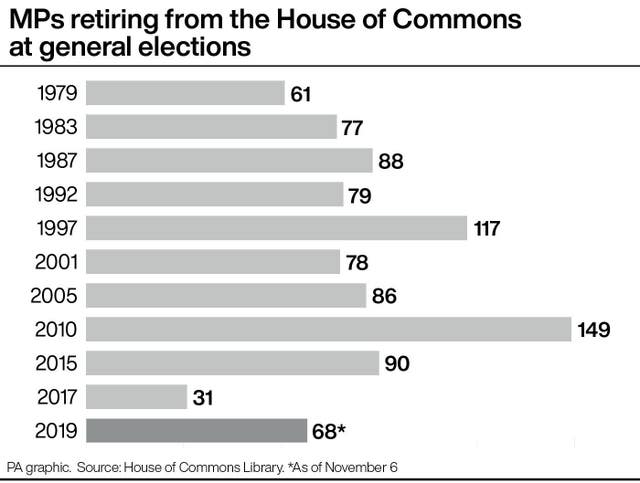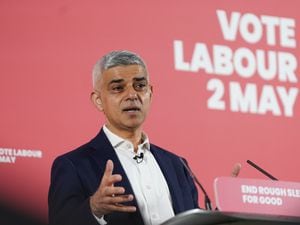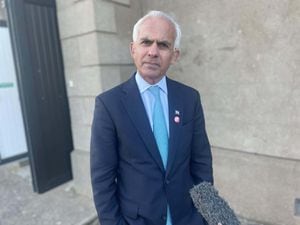MP parachute payment complaint highlights costs of losing parliamentary seat
Former MPs leaving the House of Commons are entitled to receive funds to help them and their staff manage their exit from Parliament.

A complaint by a defecting former Labour MP who feared she would miss out on a parachute payment if defeated at the next election has thrown the spotlight on financial support given to parliamentarians who lose their seat.
Angela Smith was Labour MP for the Penistone and Stocksbridge constituency in South Yorkshire until she quit the party in February this year.
She plans to stand for the Liberal Democrats in the Altrincham and Sale West seat on December 12.

Ms Smith contacted the Independent Parliamentary Standards Authority (Ipsa), the MPs’ expenses watchdog, over the “terrifying” prospect she might not receive £22,000 of tax-payer funded support if she fails to win as a Lib Dem candidate in the different constituency.
On Twitter, campaign group Leave.EU criticised her for “whining that she won’t be able to feather her nest” after “running scared to a different seat”.
Under Ipsa rules, former MPs leaving the House of Commons are entitled to receive funds to help them and their staff manage their exit from Parliament.
Loss-of-office payments, which Ipsa says are “equal to double the prevailing statutory redundancy entitlement”, help MPs do this.
This payment is only available to MPs if they are not re-elected after standing in the same seat they must have previously represented for at least two years.
A spokeswoman for Ipsa confirmed Ms Smith would not receive this payment if she loses next month.
“That’s the rules and we have to stick by the rules as they are written,” the spokeswoman said.
But Ipsa said Ms Smith, who first entered Parliament in 2005, would still be eligible for a winding-up payment, equivalent to two months’ worth of salary, net of tax and National Insurance contributions.
Ipsa rules state this payment is available for MPs losing a seat they previously represented at a general election, or an MP who stands down at an election occurring before the end of a fixed parliamentary term.
The annual basic salary for all MPs is £79,468.
In a letter to Ipsa, first reported on by BuzzFeed News, Ms Smith said she could “lose everything” and “not be able to meet my mortgage payments” if she did not get funds to help after a potential election defeat.
Ipsa said Ms Smith would be entitled to claim from the winding-up budget, which is available to help former MPs defeated at an election or standing down to cover the costs of shutting down offices when leaving Parliament.

This can include covering staff pay, travel costs, office rent, utility bills and removal charges for a period of up to two months.
According to Ipsa, for London MPs, the winding-up budget is £57,150, while for MPs outside the capital, it is £53,950.
The Ipsa spokeswoman explained that winding-up payments and loss-of-office payments were only used for general or snap elections.
As a result, former MPs Fiona Onasanya and Chris Davies, who lost their seats after being ousted by recall petitions, would not have received these payments.
Ex-Tory Mr Davies lost a by-election in the Brecon and Radnorshire seat triggered by a recall petition set up after an expenses scandal.
Former Labour MP Ms Onasanya chose not to stand in a by-election in Peterborough after being kicked out of the seat following her conviction for perverting the course of justice.
Ipsa said the pair would have been eligible to claim for costs from the winding-up budget as none of its funds go directly to MPs, instead going towards the costs of closing their offices.





